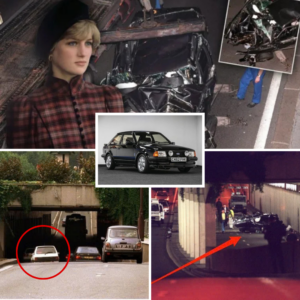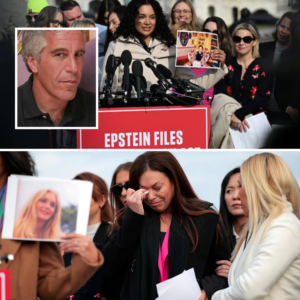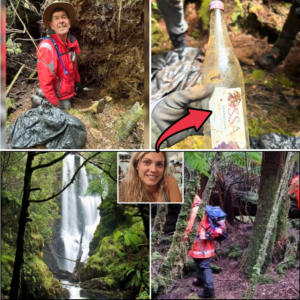On September 8, 2025, a nearly four-year manhunt for Tom Phillips, a New Zealand father who vanished with his three children in 2021, ended in a deadly confrontation with police in the rural Waikato region. Phillips, 38, was shot dead after opening fire on a police officer during a burglary investigation, leaving the nation grappling with the tragic outcome. Amid the shock and sorrow, an eyewitness account has emerged, painting a different picture of Phillips and his children, Jayda (12), Maverick (10), and Ember (9). The witness, a local farmer, claimed to have seen the family driving through the Marokopa area months earlier, singing joyfully in their vehicle. “They had a very good life out there,” the witness said. “The police shouldn’t have shot him.” This perspective has reignited debates about Phillips’ motives, his life on the run, and the circumstances that led to his fatal encounter with authorities.
The Final Moments of Tom Phillips
The chain of events that ended Phillips’ time as a fugitive began in the early hours of September 8, when police responded to a reported burglary at a farm supply store in Piopio, a small town in New Zealand’s Waikato region. CCTV footage showed two figures—one believed to be Phillips and another a shorter person, likely one of his children—loading stolen goods onto a quad bike. Acting on a tip, police deployed road spikes to stop the vehicle as it fled toward Marokopa. When the quad bike hit the spikes and veered off the road, a lone officer approached, only to be shot in the head and shoulder by Phillips using a high-powered .308 calibre rifle. A second officer arrived moments later and returned fire, killing Phillips at the scene. The child with him, believed to be Jayda, was unharmed and taken into custody.
The injured officer, referred to as Officer A, survived due to the laminated windscreen of his patrol car, which deflected the bullets’ trajectory. He underwent multiple surgeries for severe injuries to his head and shoulder and faces a long recovery. By late afternoon, police, aided by information from the child at the scene, located the other two children at a remote campsite 2 kilometers away in dense bushland. The campsite, hidden under camouflage netting and equipped with quad bikes, tarpaulins, and gas equipment, suggested a well-established hideout where the family had been living off the grid.
The children were reported to be physically unharmed and were placed in the care of Oranga Tamariki, New Zealand’s child welfare agency. Their mother, known only as Cat, expressed relief at their safety but sorrow over the violent end to the ordeal. “They’ve been missed every day for nearly four years,” she told local media. “We hoped for a peaceful resolution, but we’re grateful they’re safe.”
The Eyewitness Account
Amid the media frenzy, a local farmer from the Marokopa area shared a striking recollection with authorities and reporters. Approximately six months prior, in early 2025, the farmer had spotted a black Toyota 4WD driving slowly along a remote road near Te Anga. Inside were Phillips and his three children, windows down, singing what the farmer described as “cheerful folk songs.” The children appeared healthy and content, laughing as they sang. “They didn’t look like they were suffering,” the farmer said. “They seemed happy, like they were on some grand adventure. Tom was smiling too, like he was proud of the life he’d made for them.”
The farmer, who requested anonymity due to the case’s sensitivity, expressed sympathy for Phillips. “They had a very good life out there, living free in the bush. He wasn’t hurting anyone, just trying to keep his kids close. The police shouldn’t have shot him—they could’ve talked him down.” The farmer speculated that Phillips’ actions, including the burglary, were driven by necessity to provide for his children, not malice. This account has stirred mixed reactions, with some locals echoing the sentiment that Phillips was a devoted father pushed to extremes, while others view him as a reckless criminal who endangered his children and others.
Tom Phillips’ Life on the Run
Tom Phillips, a skilled hunter and bushman, first gained national attention in September 2021 when he and his children disappeared for 19 days. Their Toyota Hilux was found abandoned near Kiritehere beach, prompting a costly land, sea, and air search. Phillips later returned, claiming they had been camping to “clear his head.” Charged with wasting police resources, he was due in court in January 2022 but vanished again with Jayda, Maverick, and Ember in December 2021, this time for good. Police believe the initial disappearance was a trial run for a longer escape, motivated by a custody dispute with the children’s mother.
Over the next four years, Phillips and his children lived in the rugged Waikato wilderness, a region of dense forests, caves, and farmland. Sightings were rare but telling: Phillips, often disguised in glasses or a mask, was linked to petty thefts, including break-ins at hardware stores and a grocery shop in Piopio in August 2025. In 2023, he was charged with an armed bank robbery in Te Kuiti, allegedly with one of his children as an accomplice. Despite an $80,000 reward and public appeals, Phillips evaded capture, leading to speculation that he received help from sympathetic locals or others in the tight-knit Marokopa community.
The campsite where the children were found revealed a life of resilience and ingenuity. Photos showed a well-hidden setup with basic supplies, suggesting Phillips taught his children survival skills. However, experts worry about the psychological toll on the children, who had little contact with the outside world and likely missed formal education. “They’ve endured significant trauma,” said a child psychologist not involved in the case. “Reintegrating after years of isolation, especially after witnessing their father’s death, will be a long process.”
Public and Official Reactions
The incident has sparked intense debate across New Zealand. Prime Minister Chris Luxon called it a “sad and tragic” outcome, emphasizing that no one wanted such a violent end. Waitomo District Mayor John Robertson expressed devastation, noting the community’s hope for a peaceful resolution. “This has torn us apart,” he said. “We knew Tom, and we cared about those kids.” Locals like Marlene McIsaac voiced concern for the children’s well-being, saying, “They’ve lost their dad in the worst way. They’ll need so much support.”
Phillips’ family, while grieving, denied aiding him. His sister, Rozzi Phillips, had publicly pleaded for his return in August 2025, saying, “We’re ready to help you through this.” His parents, devastated by his death, described the police response as excessive, with his father telling reporters the family felt “shafted” by authorities. Meanwhile, Cat, the children’s mother, who worked briefly at a nearby farm, expressed mixed emotions. “I’m relieved my children are safe, but heartbroken it ended like this,” she said.
Police Commissioner Richard Chambers defended the officers’ actions, stating, “No one who shoots at my staff with a high-powered rifle is a hero.” He emphasized the priority was recovering the children safely, which was achieved despite the tragic outcome. The ongoing investigation is exploring whether Phillips had accomplices, with forensic teams examining the campsite for clues about how the family survived.
A Complex Legacy
The eyewitness account of a happy family singing in their car contrasts sharply with the image of Phillips as a dangerous fugitive. Supporters argue he was a father desperate to protect his children from a system he distrusted, while critics point to his reckless actions, including endangering his children and shooting a police officer. The truth likely lies in a gray area: a man skilled enough to survive in the wilderness but driven to crime to sustain his family’s isolation.
The case has raised questions about police tactics, the challenges of resolving custody disputes, and the allure of “living off the grid.” For the Marokopa community, the saga has left scars, with some residents reluctant to speak publicly due to divided loyalties. The children’s future remains uncertain, with welfare authorities and family members working to determine their long-term care.
As New Zealand reflects on this tragedy, the image of a family singing happily in a car lingers, a poignant reminder of the human complexity behind the headlines. Whether Phillips was a folk hero or a flawed father, his story—and the lives of Jayda, Maverick, and Ember—will continue to captivate and challenge the nation’s understanding of family, freedom, and justice.




